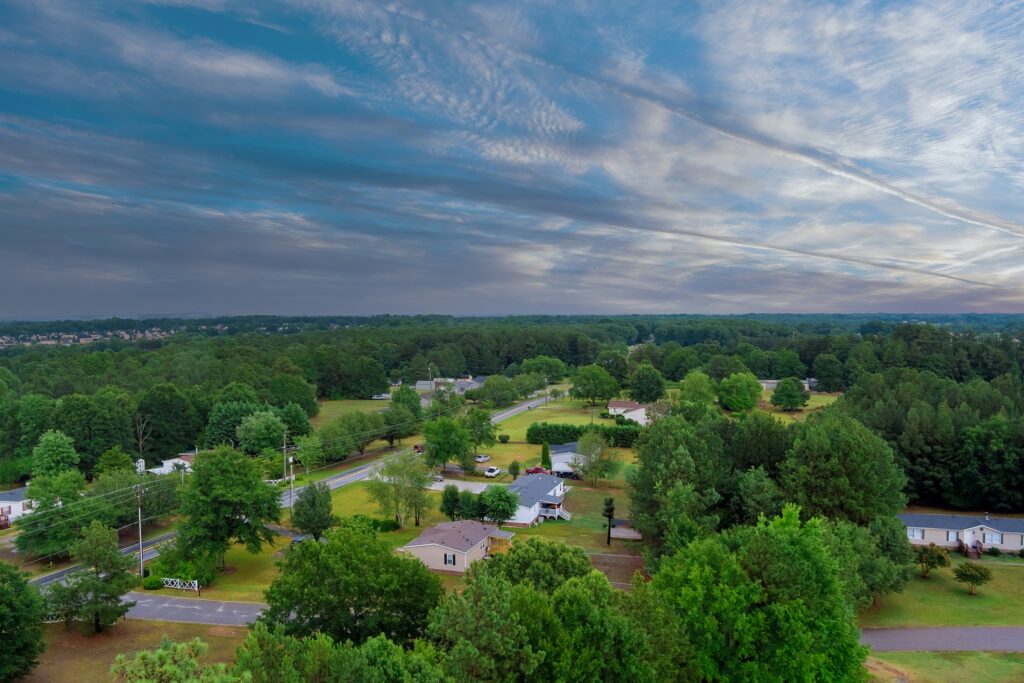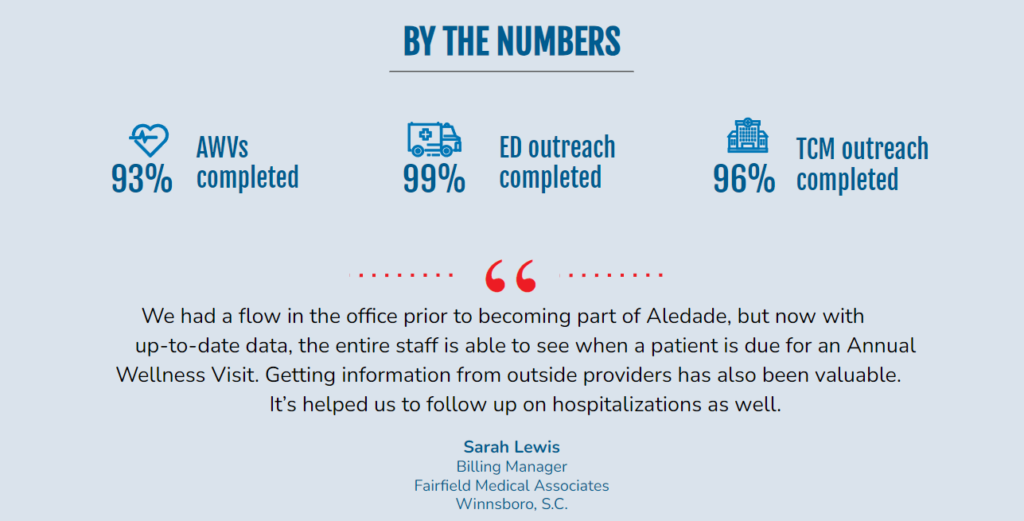Challenge

With five physicians and two locations, South Carolina rural health clinic (RHC) Fairfield Medical Associates has been a longtime anchor of care for historically underserved Fairfield County. But when the region’s hospital closed in 2016, leaving Fairfield and a free-standing emergency department as the sole sources of care for the community, many patients struggled to get the services they needed.
“We’re a very big county, so we have patients who live far away and have a hard time getting here,” said Practice Manager Liz Mann. “But our doctors have been here for over 40 years, so some patients will come to us before they’ll go to the hospital, even when they really should go to a hospital.”
On top of this, Fairfield faced another pressing challenge: a majority of their physicians were approaching retirement age. The looming staffing shortage underscored the need for innovative solutions to sustain services for a community very much in need of care.
Solution
In 2023, Fairfield joined Aledade’s South Carolina ACO. Taking advantage of available workforce shortage solutions, the clinic was able to hire a part-time physician. While this allowed the health center to bridge a staffing gap and improve capacity, it didn’t resolve the challenge of patients being able to get to the office.
“We increased access to care, but if patients can’t get here, the access doesn’t help them,” said Mann.
To address this issue, the Fairfield team applied to a grant program through the South Carolina Center for Rural and Primary Healthcare. In its proposal, the team pitched a partnership with the South Carolina EMS Association. The goal: to bring a community paramedic on board to provide in-home care and outreach to patients facing barriers to getting care at the clinic.
“We thought this would be a really unique opportunity to demonstrate proof of concept with embedding the paramedic in the RHC as opposed to having it be affiliated with the hospital,” said Henry Lewis, executive director of the South Carolina EMS Association. “What we’ve learned is that when you show modifiable behavior, you often end up having a reduction, and inappropriate utilization shows up on a balance sheet as cost avoidance, not as profit.”
Although South Carolina has about 15 different community paramedic programs in various states of completion, the partnership with Fairfield presented a unique opportunity: the patients who were flagged as super-utilizers of the area’s EMS systems were the very same patients being lost to care at Fairfield.
With the mutual goal of reducing EMS overuse and increasing primary care utilization at Fairfield, the organizations aimed to join forces.
“We thought this would be a really unique opportunity to demonstrate proof of concept with embedding the paramedic in the RHC as opposed to having it be affiliated with the hospital.”
– Henry Lewis, Executive Director, South Carolina EMS Association
Bolstering the grant application, Aledade Market President Andrew Chang wrote a letter of support for the clinic, highlighting the team’s dedication to delivering value-based care and commitment to influencing social drivers of health within the ACO.
“We are facing a critical physician shortage here, and the fact that they wanted to flex to the entire clinical team, including EMS, is something that I really appreciate,” Chang said. “We need to do more of this, especially in South Carolina where we have a lot of rural communities.”
Results
Between its participation with Aledade and the acceptance of its grant proposal, a lot has changed for Fairfield over the last year.
“We had a flow in the office prior to becoming part of Aledade, but now with up-to-date data, the entire staff is able to see when a patient is due for an Annual Wellness Visit,” said Fairfield billing manager Sarah Lewis. “Getting information from outside providers has also been valuable. It’s helped us to follow up on hospitalizations as well.”
See the Aledade App in action – request a demo.

And the numbers speak for themselves. In its first performance year, the practice completed Annual Wellness Visits (AWVs) with 93% of eligible patients and conducted outreach to 99% of patients who recently visited the emergency department and 96% of patients who had been discharged from a hospital or long-term care facility.
The clinic successfully launched its new community paramedic program at the start of 2024. Although it’s still too early to track results, the impact has been profound for patients, and that impact extends well beyond traditional healthcare services.
“Our first patient had no heat, and her smoke detectors weren’t working. She had no kitchen table, no handrail on her steps,” said Sarah Lewis. In addition to delivering in-home care, the team was able to supply the patient with smoke detectors and propane.
In other cases, the paramedic performed essential services, including remote EKG testing and lab work, for patients who were bed-bound due to recent injury or chronic disease. The clinic’s leadership is currently reviewing additional equipment options to support telehealth and remote monitoring capabilities.
Fairfield’s patient population continues to grow, and the team looks forward to working with Aledade and the South Carolina EMS Association to deliver even more value-based care to members of the community – both in the clinic and in the home.
Discover how Aledade can support your rural health clinic.



